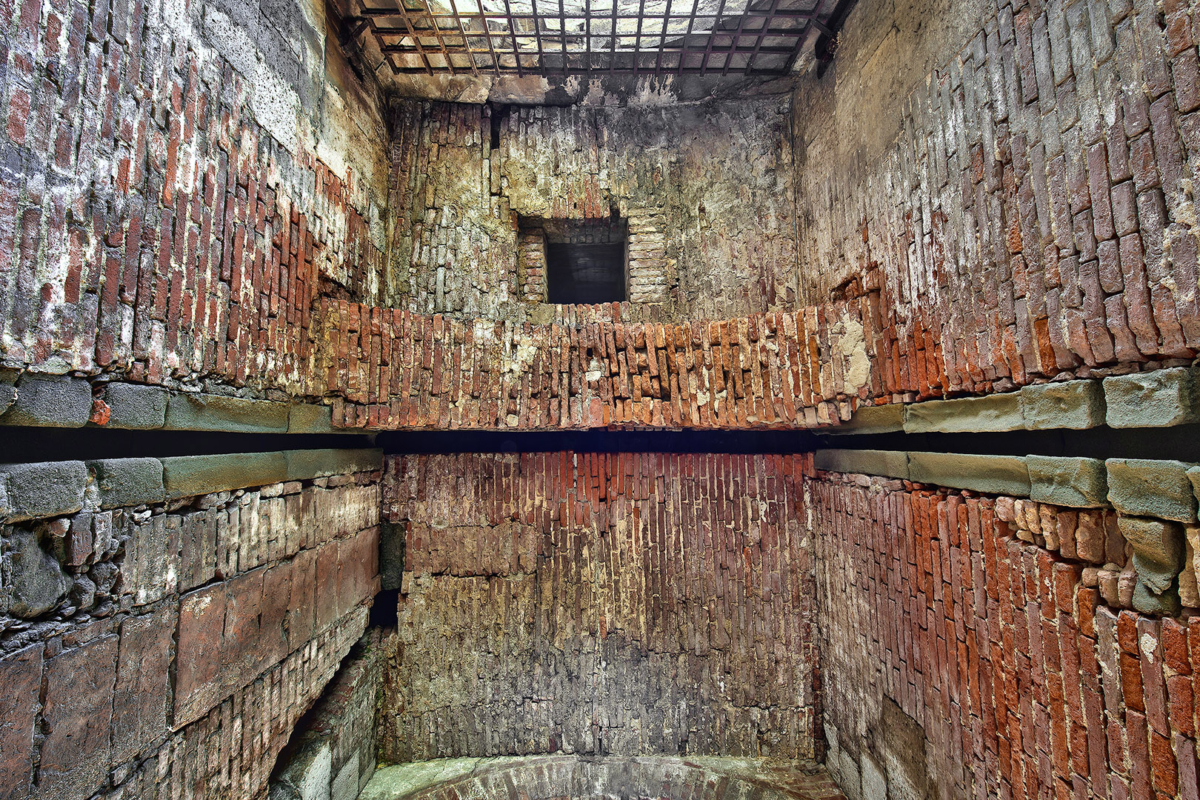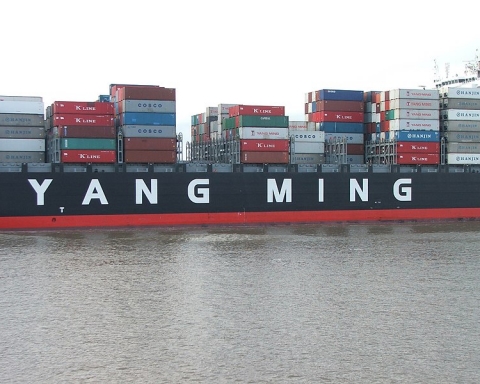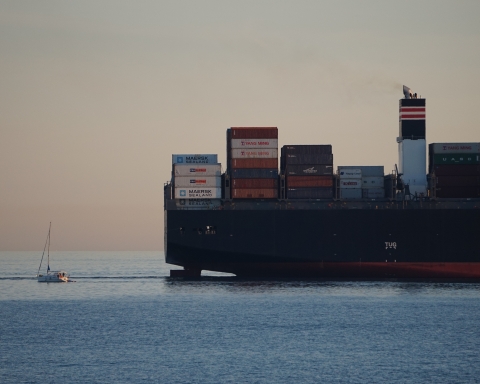Excerpt from the article “Il porto di Livorno fra Inghilterra e Oriente” published in the periodical Nuovi studi
Livorno, founded in the middle of the 16th century by Cosimo I de’ Medici, became the English navy’s privileged port of call when it returned to the Mediterranean in the 1870s. This constant link between the Tuscan port and England is justified not only by the ancient economic ties between the two countries, which had never been interrupted, but also by the fact that English commercial projects in the Mediterranean put the emerging Nordic power in direct competition with Genoa and especially with Venice. Well positioned on the route to the East, equipped with new port facilities, without its own merchant fleet, managed by the Medici’s enlightened policy, Livorno was therefore an ideal base for English trade.
The Tuscan port was first and foremost a compulsory “technical port of call”. In fact, trips to southern Europe and the East were considered to be long journeys, which necessitated strong and well-armed ships, trained crews and experienced captains. Voyages from England to Livorno and the East and back lasted about a year, but sometimes even longer if the merchant ships were employed on intra-Mediterranean charters. It was therefore necessary to have a berth where the hull, which needed more maintenance while in warm waters, could be rebuilt or , alternatively, repaired , and where it was possible to renew sailing equipment and ropes and stock up on food and drink.
The Tuscan port had been designed by the Medici to meet these needs since it was first built, with convenient quays, an arsenal and a deep-water dock. In Livorno it was easy to buy food because it was also designed as a “port de blé”. Tuscany, moreover, being unable to meet the nutritional needs of its inhabitants, had a stable maritime and merchant link with southern Italy which was a rich source of supply.
The need for a technical port of call for the vessels that sailed as far as the East was even more felt from the mid-seventeenth century onwards when, in addition to merchant ships, Livorno became a base for repairs and supplies for the warships that escorted them and for the fleet that patrolled the Mediterranean area to repel attacks from barbarians and counter privateering, which accompanied every conflict, and face competition from the Dutch navy.
The routes of the vessels escorting the convoys crossed the entire Mediterranean to Izmir, Constantinople and Scanderone, port of Aleppo (today Alexandretta). Levant Company ships left from here loaded, after having arrived with silver bars or silver coins. The frigates used to protect the rich Mediterranean trades usually sailed from English ports, but sometimes they came from Newfoundland, from where the fish ships pointed their bows directly towards the Mediterranean markets
The instructions given in 1659 by the English Admiralty to Captain Jonas Poole – who was to escort the ships bound for the Mediterranean with the “Leopard”, the “Jersey” and the “Elisabeth” – give a clear idea of the route followed by the merchant ships and warships assigned to them. Starting from the Downs, at the mouth of the Thames, and continuing to Plymouth, Poole was to lead the convoy to Gibraltar and then to Alicante, where a number of ships were headed. The escort would then continue to Genoa and Livorno and, having left some vessels in those ports, would take those bound for the East under his protection.
Along the route the English frigates would escort the ships bound for Naples, Messina, Zakynthos and Izmir and then arrive at Scanderone. After a stop of no longer than two weeks Poole had to return to Livorno and Genoa, stopping only if he thought it necessary to accompany merchant ships to their destinations along the route, but without ever stopping more than six days. From the Italian coast he would then have to return directly to England. […]
The advantages of the Livorno port of call consisted not only in the modernity of its equipment and services offered and the abundance of inexpensive goods. Furthermore, all vessels could take advantage of all this without fear of encountering restrictions of any kind on their routes and operations by the Grand Duke. This was something that was not common at that time. The biggest problem in Cadiz, for example, was precisely the interference from the Spanish Government. For the same reason, probably, Livorno had been chosen instead of Messina or Naples, ports much more convenient for their geographical position compared to the route between England and the East.
As far as sailing in this area was concerned, Livorno and the territorial waters of the Grand Duchy were a free zone where vessels of all nationalities could move freely not only in relation to the local government but also in relation to enemy units.
A policy of neutrality was a necessary premise and a direct consequence of the Medici’s will to make Livorno a port of call and an international goods collection centre, especially if we take into account that in the 17th century all the European political and economic conflicts had repercussions in the Mediterranean where England and Holland, although geographically distant, played a dominant role.
The Grand Duke’s policy in this regard began to take shape in 1590s when Ferdinand I complained to Elizabeth that English sailing ships were harassing and robbing the vessels “which they found destined for this port and leaving from it, to the detriment of my Customs and its freedom”. He therefore begged her to order her vessels not to harass the ships arriving or leaving from Livorno.
In 1601 the English captured a local ship from Livorno which had just left the port and was loaded with goods belonging to Tuscans. The Grand Duke immediately applied the law of reprisal and ordered the seizure of all English goods both in Pisa and Livorno. He then demanded that “the owners of the English ships leaving Livorno take an oath not to offend any vessel going or coming to this port” because he absolutely did not want to “lose the trade of all the other nations using the Port of Livorno…”.
On this occasion, as on other occasions later, the British living in Tuscany sided with him. There were in fact too many losses at stake in their trade with the East.
Livorno port’s neutrality became a necessary rule when, from the mid-seventeenth century onwards, the Mediterranean became one of the most important scenarios of the trade war between England and Holland. At the beginning of the first Anglo-Dutch conflict, Captain Appleton, left by the English Admiral Badiley to guard the port, captured an incoming French ship. This was the second such episode, so the Grand Duke summoned all the English merchants living in Livorno to express his disappointment. They were asked to forward a letter of protest for this violation of the freedom of the port, accompanying it with a petition from the merchant community.
The Grand Duke, determined to keep peace between the English and the Dutch in his port, asked and obtained an exemplary punishment of those responsible for the offence. Appleton, chosen as scapegoat, was forced to promise before the court that in the future he would not harass either the Dutch or the French in the stretch of sea near Livorno and was immediately stripped of any command in the British navy.
Even in 1658 the aggressiveness of English ships in Tuscan waters pushed the Grand Duke to send letters of protest to London. Among other things, a Spanish vessel from Naples had been captured inside the port. In this case, as in previous ones, the English merchants from Livorno sided with the Tuscan government.
Translation by Giles Foster




